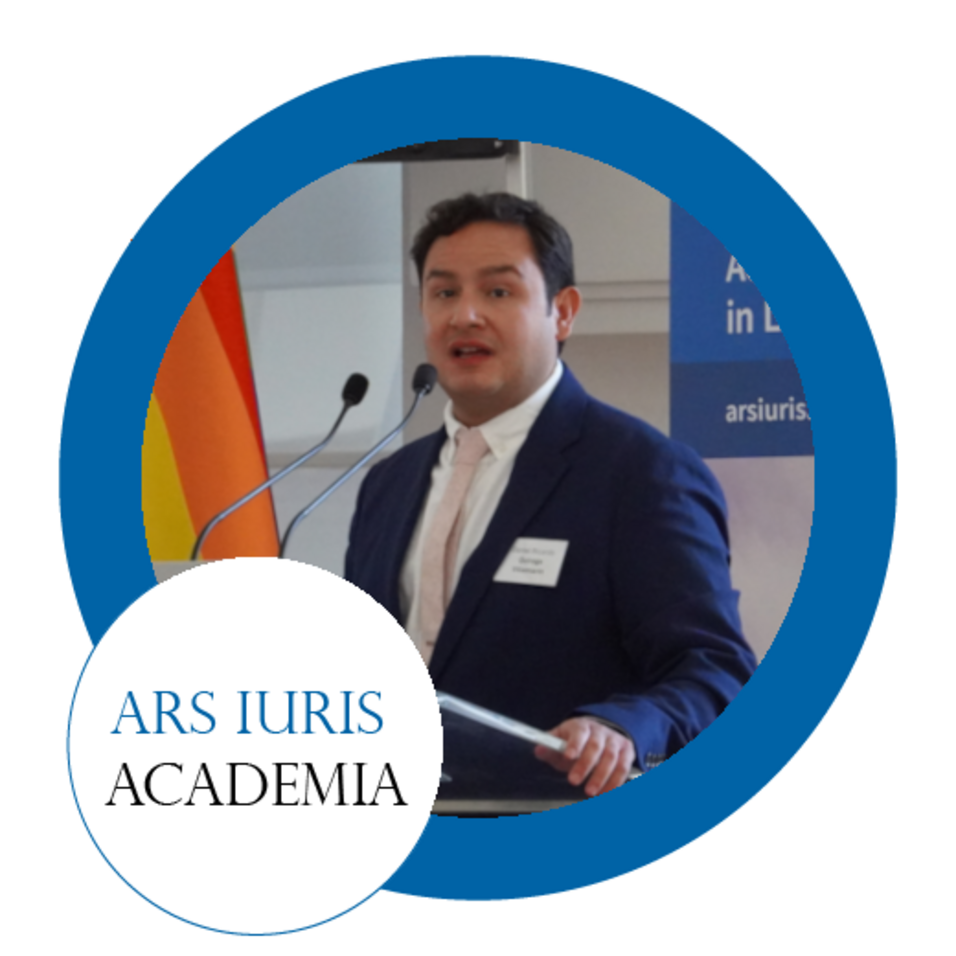Summary
Who speaks for the peoples of the world? Where, if at all, can one find the royal “we the peoples” enshrined in the preamble of the Charter of the United Nations (UN)? National polities, more often than not, have clearly defined institutional arrangements in relation to who speaks on behalf of its “people” —centralized legislative bodies, chief among them. Think, for example, of the US’ Congress, towering over Capitol Hill. Or of Theophil Hansen’s Parlamentsgebäude on the Ringstrasse in Vienna,
But when it comes to the elusive “international community” or “society,” a difficult question continues to haunt us —who speaks for “the globe”? As I’ve argued more extensively in my PhD dissertation, an approach taken to this problem in the twentieth century was to draw from the template of the European domestic parliament to “democratize” international relations: that is, to make a sort of “parliament of nations.” This is how we should understand international law’s so-called “move to institutions” and the rise of “parliamentary” or “multilateral” diplomacy. Indeed, since its early days, many have seen the League of Nations as a sort of inchoate “parliament of man” or “federation of the world as a whole” —a mantle that eventually fell to its successor institution, the UN. Ever since the first Assembly of the League —which officially held its inaugural session on 15 November 1920— in Geneva, there has been an expectation that the whole international community should meet at least one a year to discuss global issues. Most importantly, in these Assembly sessions (which are now still held every North Atlantic fall under the aegis of the UN) are at least, rhetorically, fully horizontal. Great and small powers alike, echoing Vattel’s quip on the equal sovereignty of dwarves and giants, sit side by side following an alphabetical order of names with equal rights to participate.
But the creation of these institutions did not, in itself, bring about global democracy. In fact, these institutions (drawing again from the template of domestic legislative bodies) created both “upper” and “lower” chambers of deliberation, with powers of decision slanted clearly in favor of the former. For that reason, the unequal prerogatives of the Great Powers in the UN’s Security Council (UNSC) —and before it, the League Council— have remained a controversial issue in international affairs. It is not surprising, given this process of translation from the domestic into the international sphere, that these institutions are hampered by some of the same limitations of the European domestic parliament. They are, after all, institutions designed for indirect representation in which the democratic promise of the “lower chamber” are effectively tempered by the “seniority” of the “upper” house. This is, in fact, the historical and etymological background of these senatorial bodies since Rome: chambers of senile elders that provide expertise and stability. The same has been true, then, at the international scale. We have an international order of that grants special privileges to the Great Powers who sit in those senile chambers —in which a sort of a literal “Global Herrenhaus” has the final word in global affairs.
With this in mind, in my forthcoming article I trace a history of these debates, to argue that quest to democratize the world order is still very much an unfinished one. First, I theorize what it entails to “parlamentarize” interpolity and international relations as a form to democratize the global order. Then, I turn to (debates surrounding the League’s Council (its powers, composition, mandate, inter alia), shortly before addressing a similar set of concerns in relation to the UNSC. Finally, I conclude with some remarks on the promise, and perils, of direct democracy at the international level. For, alas, we have not entirely gone beyond the structures of the old diplomacy of kings and emperors.
Biography
Daniel Ricardo Quiroga-Villamarín holds a BA in Law with a minor in Public Affairs (2018) from the Universidad de los Andes —Uniandes (Bogotá, Colombia) and a MA in International Law (2020) from the Institut de Hautes Études Internationales et du Développement —IHEID (Geneva, Switzerland), where he was awarded the Fondation Hans Wilsdorf scholarship and the Mariano Garcia Rubio Prize for best MA dissertation. He obtained his PhD in International Law with a minor in International History & Politics (2024) —with the distinction summa cum laude avec les félicitations du jury— at this same institution with the support of a Doc.CH grant from the Swiss National Science Foundation.

